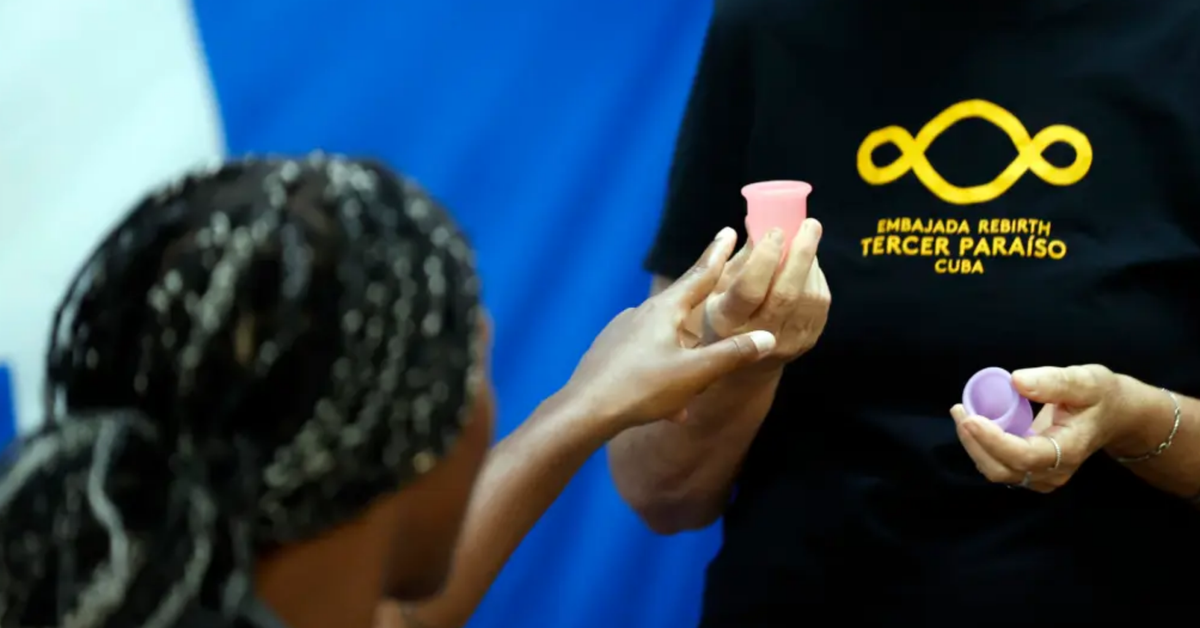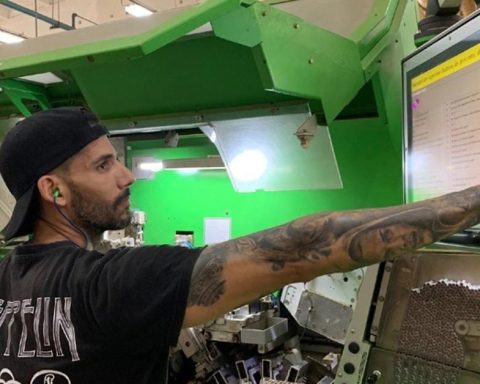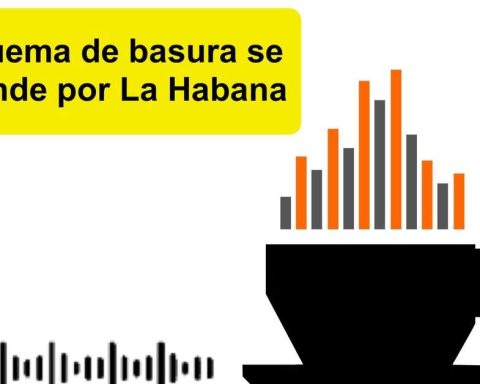Havana/With the aim of confronting the taboos and ignorance surrounding the menstrual cup, the initiative Cups for Cuba has recently paused the training of the national women’s soccer team at the Pedro Marrero stadium to inform Cuban women about the benefits of this intimate hygiene product.
One of the workshop managers, Cuban Marbelis González, has explained in detail to a reluctant – but curious – audience the advantages of these small medical silicone containers that accumulate blood for up to 10 hours in each menstrual period.
The meeting, attended by an EFE team, is part of the initiative that emerged in 2021 Cups for Cuba of the local enterprise La Mina and Tercer Paraíso Cuba, an international project that promotes sustainable development initiatives.
At the meeting, in which donated menstrual cups were also given to the activists
One of the purposes is to “dialogue about the benefits, advantages and use of the cup, to discuss issues associated with the emotional, physical and reproductive well-being of menstruating people from an inclusive approach,” González explained to EFE.
This “cup ambassador”, as the women who teach these workshops are known, developed the conversation naturally and stripped of conventions and taboos when explaining to the young athletes how to insert the cups, and how often they should be changed. , how to know what size corresponds to each one, among other questions.
At the meeting, in which menstrual cups donated to the activists were also given, González commented that the American actress Leona Chalmers created the first cup in 1937, an accessory that has been modernized over the years despite misunderstandings.
“In the workshops we also talk about hygiene and the physical and emotional well-being that cups can offer compared to other more conventional products such as sanitary pads,” he stated.
Each workshop represents, according to this coordinator, “an opportunity to promote female empowerment and for us to know our bodies better.”
These workshops take the place of Cuban public health institutions that do not talk about the subject, nor do they offer protocols on how to use these products.
In Cuba, the use of cups is quite unusual among women of childbearing age, who prefer to use sanitary pads (known as intimate) or tampons, despite how difficult it has become to obtain them due to low national production and high prices. those imported in the informal market.
In 2018, 14ymedio made a report In this regard, the absence of this product in Cuban pharmacies was evident despite the fact that several of those interviewed strongly recommended it, including a gynecologist and several users who acquired it outside the Island. The biggest drawback derived from its use in Cuba is the lack of running water in many public bathrooms, which forces you to carry a handle to empty it, in addition to washing your hands.
This transition also collides with the prevailing ignorance, the high costs of a drink – it can reach 20 dollars or euros or more depending on the brand – and that they only get it through people who bring them from other countries and sell them.
Not all Cuban women can buy them, although they are a more comfortable and hygienic option. On the other hand, those who can do so avoid using them due to ignorance.
“Many Cuban women do not understand that they can lead a normal life with drinks and also not have the stress of watching if we get blood on ourselves”
“Many Cuban women do not understand that they can lead a normal life with drinks and also not have the stress of watching out for blood stains. You can do exercises, go to the beach and other activities without the menstrual period being a problem,” González stated.
That, he added, “not to mention that it allows us to save the money we spend buying sanitary pads – also expensive in Cuba – and the environmental benefits compared to the waste generated by other hygienic products.”
Copas para Cuba faces the enormous challenge of breaking taboos and reaching more communities in the country. In this endeavor, they are grateful for the support of Embassies such as that of the Netherlands, which has allowed them to give workshops in some locations in western Cuba, although it is still insufficient, as González explains.
Its purpose is to bring information to other regions of the country, especially vulnerable communities in the center and east, and for more women to join and support this interesting initiative.


















